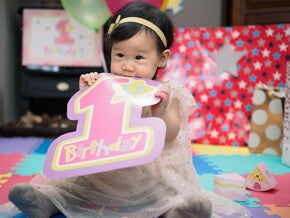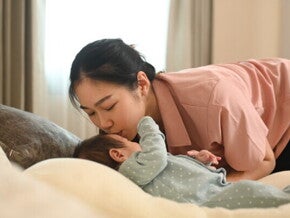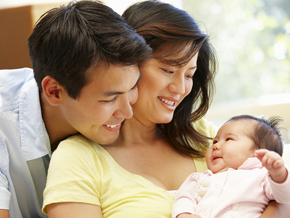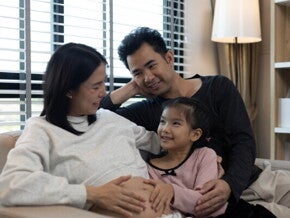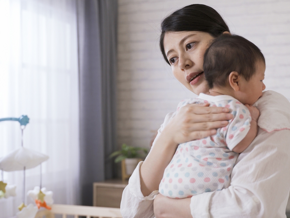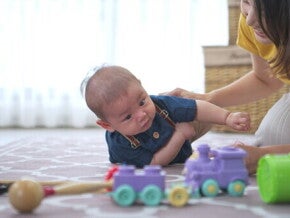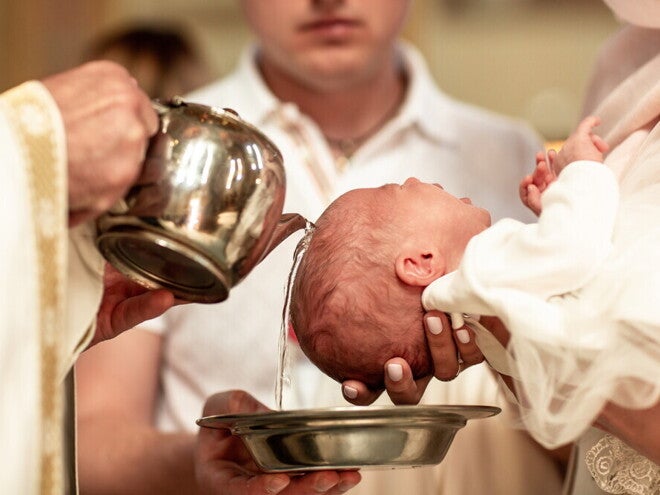
For many Catholic Filipino families, a christening or baptism is a cherished family event. You gather loved ones, choose godparents, and celebrate your little one's first official welcome into the faith.
But if you've talked to parents who've already gone through a christening ceremony, you'll quickly realize this is one occasion where you can't just show up with the baby on the day itself.
This guide helps you figure out the best time to schedule your baby's binyag and walks you through what to prepare, including registration and requirements.
When Can You Schedule a Christening or Baptism
The Catholic Church encourages parents to have their child baptized within the first few weeks after birth. In practice, though, many families schedule the ceremony when the baby is around 3 to 6 months old or after their first round of vaccines in the immunization schedule.
Some prefer waiting until their little one is stronger or when relatives can gather for the event. It also gives moms time to recover from childbirth and adjust to caring for a newborn.
Aside from your health and your baby's readiness, your schedule will depend on the parish's available dates for the ceremony, which is why it's best to plan rather than wait until the last minute.
What to Consider When Booking Your Baby's Baptism Date
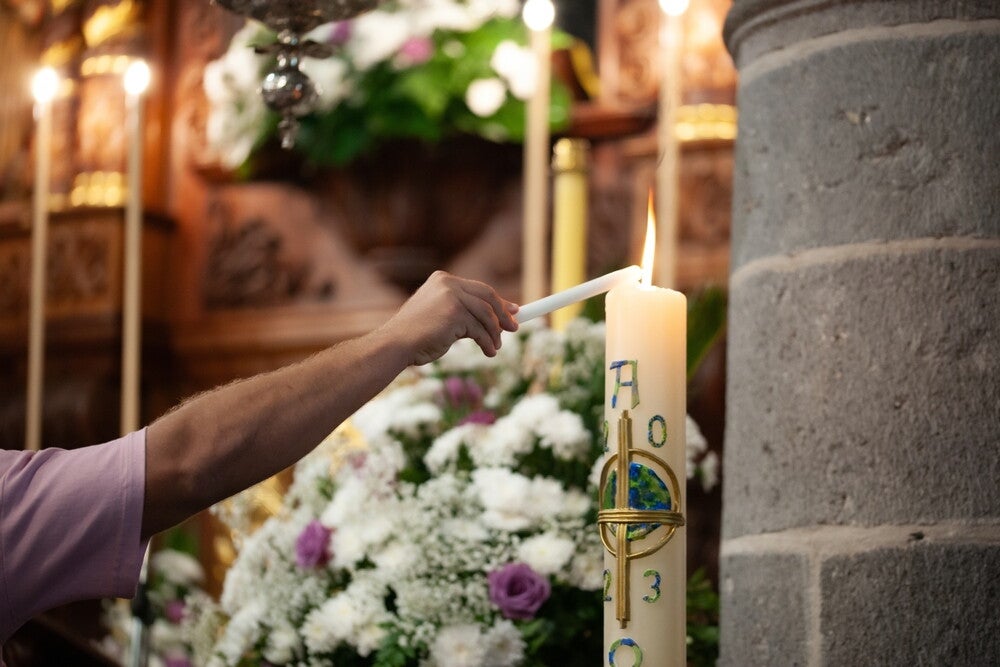
Before setting your heart on a date for your baby's christening or baptism, call or visit your parish first. Getting your preferred date and time often depends on how your parish organizes baptism rites. Here are a few things to keep in mind:
Registration slots
Catholic churches vary in their registration process for baptism. Some only require registration three weeks before the ceremony, while others need to be informed at least two months in advance.
Don't wait too long to book your church schedule since popular parishes can fill up quickly, especially on weekends.
Church baptism schedules
Many parishes hold christening or baptism ceremonies only on certain days and times. Check with your parish office for their specific schedule before finalizing your date.
Group or private ceremony
Most churches conduct group baptisms, where several babies are baptized during the same ceremony. If you prefer a private baptism just for your baby, check if your parish allows it. Some do for an added fee, and slots are limited.
Pre-baptism seminars
Parishes require parents and godparents to attend a pre-baptism seminar at least a month before the ceremony. Each parish sets its own schedule, so make sure to factor this in when choosing your date.
Attending the seminar is also a good way to reacquainting yourself with the meaning of the sacrament and your responsibilities as Christian parents and godparents.
Requirements for a Christening or Baptism Ceremony
Before visiting your parish to register, bring the original and photocopies of the following documents, along with valid identification.
1. Your baby's birth certificate
Ideally, this birth certificate should be the version issued by the Philippine Statistics Authority (PSA). However, most parishes will also accept a copy from the city hall's Office of the Civil Registrar if the PSA copy is unavailable.
2. Your marriage contract or baptismal certificate
A child can only be baptized in the Catholic Church if their parents are also Catholic. To verify this, the parish will typically request your marriage certificate, which indicates the Church where your wedding ceremony took place.
If you and your husband are not yet married or were married in a civil ceremony, baptismal or confirmation certificates should suffice.
In some instances, the priest might also recommend a "convalidation" ceremony, which is the process of having your civil marriage formally recognized and blessed by the Church. It's best to discuss this directly with your parish priest.
3. Permit or endorsement letter from your home parish
If you plan to have your child baptized in a church outside your home parish, you may need a permit or endorsement letter from your original parish.
This can happen if your family recently moved, if you prefer a different church for sentimental reasons, or if you want to hold the ceremony in a parish closer to relatives.
Requirements to Be a Ninong and Ninang
Choosing godparents comes with specific qualifications from the Catholic Church to ensure they can serve as spiritual guides to your child. According to Canon Law, a ninong or ninang must:
- Be a practicing Catholic who has received the sacraments of baptism, confirmation, and Holy Communion
- Be at least 18 years old, unless the parish priest or bishop grants an exception
- Not be the child's parent
- Not be under any canonical penalty (such as being restricted from receiving sacraments)
- Lead a life of faith consistent with the responsibilities of a godparent
If a godparent is married, the parish may request a marriage certificate to confirm that the marriage took place in a Catholic church. Single godparents may be asked to present their confirmation certificate. You can submit copies of our chosen godparents during registration or the pre-baptism seminar.
Someone who belongs to another Christian denomination may still join the ceremony. But ideally there must still be at least one Catholic godparent.
Again, each parish can have slight variations in how it implements these rules, so it's best to check your Church's specific requirements early when deciding on your baby's godparents.
FAQs on Number of Godparents, Baptism Party, and More
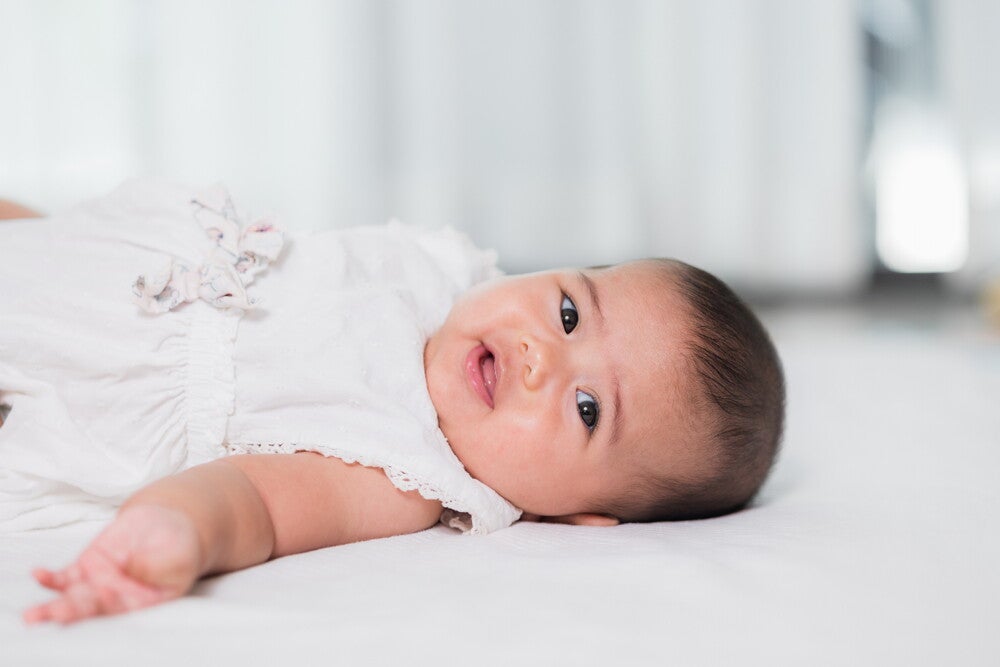
Once you've taken care of the schedule and requirements, you can focus on the details that make your baby's christening or christening more personal. Here are a few common questions parents ask when planning the celebration.
How many godparents should my baby have?
According to Church guidelines, all your baby needs is one godparent or one godmother and one godfather.
Still, many Filipino families choose to have more to include close friends and relatives. Ask your parish how many sponsors you're allowed, as some set a cap on the number. Some parishes may also ask for extra fees for every extra godparent.
Is it okay to send digital christening invitations to godparents and guests
Yes, sending digital christening invitations is acceptable. Many parents now send invites through email or messaging apps to make it easier for everyone to confirm attendance.
For godparents, though, it helps to send three types of invitations. The first is a personal message asking your friend or relative if they'd be willing to become a godparent. It isn't just a symbolic gesture because you're asking them to be present in your child's life until adulthood.
The second invitation can be a simple save-the-date with the parish name and location. This way, they can block their schedule early, especially if they need to attend the pre-baptism seminar (include this date if you already have one). Send the save-the-date as soon as you registered and booked a schedule at the Church.
The third should include the complete details such as the church name, ceremony time, reception venue (if applicable), and dress code.
What should my baby wear for the christening ceremony?
Traditionally, babies wear white christening outfits to symbolize purity, and most Catholic Churches actually require it. Do ask your parish about the dress code for the baby as well as the godparents and your guests.
Some families use heirloom baptism clothes passed down from older siblings or relatives, which adds a sentimental touch.
Do I need to bring christening candles during the ceremony?
Your Church may provide the baptism candles, which symbolize your baby's new life in faith, for a fee. But you can also bring your own if you want something personalized. Some families keep these candles as keepsakes.
Is a baptism party or reception required?
A baptism reception isn't required, but many parents still hold one. It's a lovely way for family and friends to meet your baby and for you to express your gratitude to the godparents for taking on their special role in the family's life.
That said, the celebration doesn't have to be grand, especially when you may not be in party planning mood after recently giving birth. Many parents choose to book a restaurant that can take care of the baptism cake and meals so they can focus on enjoying the day instead of stressing over preparations.
Focus on What Matters
There's no strict rule on how soon you should schedule your baby's binyag. Some parents prefer an early ceremony, while others wait a few months until their lives feel more settled.
Whether you choose a simple celebration or a more festive gathering, remember what makes a baptism truly memorable—raising your child in faith and surrounding them with people who will guide and pray for them.
With a bit of planning, from setting the date to preparing the documents and godparents, your baby's christening or baptism can be a joyful and stress-free celebration of love, family, and faith.
References
USCCB. “Baptism and Christian Initiation,” n.d. https://www.usccb.org/prayer-and-worship/sacraments-and-sacramentals/baptism.
Gustafson, Danny, SJ. “Catholic 101: Planning a Catholic Baptism.” The Jesuit Post, September 4, 2020. https://thejesuitpost.org/2020/09/catholic-101-planning-a-catholic-baptism/.
Aleteia — Catholic Spirituality, Lifestyle, World News, and Culture. “Is Baptism the Same as Christening? --Aleteia,” July 17, 2019. https://aleteia.org/2019/07/17/is-baptism-the-same-as-christening/.
“Part Two Section Two the Seven Sacrements of the Church Chapter One the Sacraments of Christian Initiation Article 1 the Sacrament of Baptism III. How Is the Sacrament of Baptism Celebrated?,” n.d. https://www.vatican.va/content/catechism/en/part_two/section_two/chapter_one/article_1/iii_how_is_the_sacrament_of_baptism_celebrated.html.












